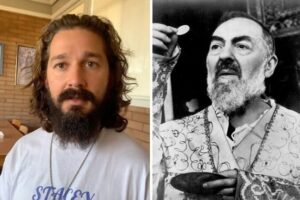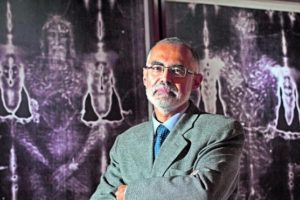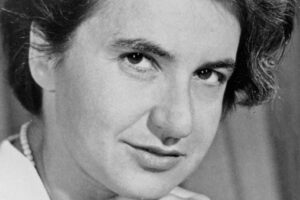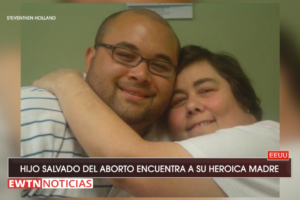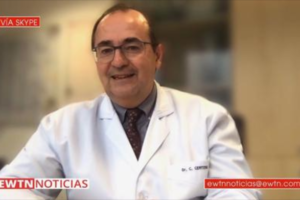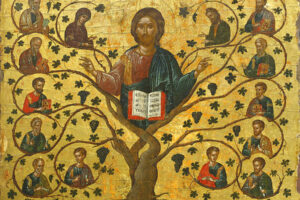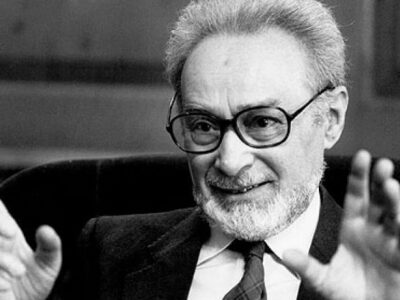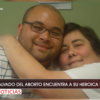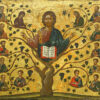A tale of two IVF doctors: one stripped of his license, another stopped by conscience
By Katherine Veik
From EWTN NEWS
Dr. Michael Kamrava, physician to the famed “Octomom,” will lose his license to practice medicine in California on July 1. Dr. Anthony Caruso, once a renowned in vitro fertilization doctor in Chicago, recently ended his practice as well – but for a very different reason.
“I can’t even begin to tell you how deep in my soul I believed that I had wronged other people,” Caruso said.
Kamrava, for his part, admitted he was “wrong” to transfer 12 embryos into Nadya Suleman, the unmarried woman who gave birth to eight artificially-conceived children with his assistance. On June 1, the Medical Board of California went further – finding Kamrava “guilty of gross negligence, repeated negligent acts, and inadequate medical records” in the case of Suleman. He was also found “guilty of gross negligence” and “repeated negligent acts” in two other cases.But Caruso, who is Catholic, believes he broke a higher law. “When I realized what I was doing, I was absolutely horrified,” he told EWTN News. “I was so upset that I had lead so many couples down a road that was wrong.”
Caruso was once one of Chicago’s most respected reproductive endocrinologists. He worked in a lab, manipulating sperm and eggs; to create life in a dish, to bring happiness to someone’s marriage, as he put it.
This creation was why he got into obstetrics and gynecology in the first place. It is also why, after 15 years in the field, he had to get out.
Caruso, who graduated from Loyola University School of Medicine in Chicago, started working in IVF in 1995 because he saw birth as an “absolute example of God’s miracle on Earth.”
“To see a life be created … and start to cry, it was the most beautiful thing,” Caruso said. “And it was matched, in my mind, with the first time I saw actual fertilization happen in the dish.”
In vitro fertilization is the process by which eggs and sperm are brought together artificially to create life outside of the womb. It is one of the many responses to infertility, which affects over six million women in the United States.
Suleman, Kamrava’s patient who became known as the “Octomom,” was one such woman.
She was diagnosed with multiple health problems, including endometriosis and pelvic adhesions, which contributed to her infertility, according to court documents. Kamrava suggested IVF to Suleman after she underwent surgery on the pelvic adhesions.
But IVF is not looked favorably upon by everyone.
IVF is bad medicine, since it bypasses the underlying causes of infertility, said Stephen Napier, an ethicist at the Catholic Bioethics Center. The Church-approved methods of Natural Family Planning, he said, can often deal with the problem directly.
Nevertheless, many women who are unable to conceive a child naturally see the process as an acceptable solution. According to the Pro-Choice Alliance for Responsible Research, “assisted reproduction” is a $3 billion dollar a year industry in the United States.
“It’s become the fabric of our culture that if you don’t have a child, then resolve it through these technical means,” Napier observed. “There’s no moral questioning of it.”
The Catholic Church teaches that the process is morally wrong because it separates reproduction from the natural process of sex and involves the mass-production and death of many human embryos.
Along with his mass transfers of embryos, Kamrava also practiced selective abortion, which Caruso said are very common in reproductive endocrinology.
One of the cases that lead to Kamrava’s revocation involved selective abortions. In 2008, an older woman asked Kamrava to perform IVF using eggs from her daughter. Seven embryos were produced and transferred to the woman, with the understanding that a “multi-fetal reduction procedure,” or selective abortion, would likely be necessary. The woman refused to abort, and gave birth to quadruplets.
Napier said practices like selective abortion and mass embryo transfers show profound disrespect, and ultimately disregard, for human life.
“If you think it’s permissible to conceive a human life in a glass dish and freeze a human life, you aren’t going to think it’s a far stretch to go ahead and destroy that human life,” said Napier. “The immorality of IVF piggybacks on the immorality of abortion.”
Caruso vehemently opposed selective abortions whenever his past clients would request them. It was actually the “increasing objectification of children” that made him stop and reconsider his line of work.
But the specialist’s former colleagues still do not understand why he chose to leave the field.
“I wish I could tell you I had this wonderful moment,” he said. “That I stood up in my job and said ‘I’m walking out because it’s wrong!’ That’s really not how it happened.”
Still, Caruso maintains that the day he left his job, went to confession, and was fully reconciled with the Church was one of the most beautiful days of his life.
In his current OB-GYN practice, he still sees the same disturbing “objectification of children” among couples who have used IVF to conceive.
“You’d be surprised how many people get to 23, 24 weeks, that used IVF, and have complications with their pregnancies,” he said. “And they say, ‘OK, fine. Just let it go.’ Because essentially they can just go back and do it again.”
Caruso believes it all comes down to how society views marriage, and Napier agrees.
“It’s not so much ‘I love my husband’ and ‘I love my wife’ and ‘we’re sharing each other within God’s plan,’” Caruso said. “It’s more about the baby and less about the relationship. It’s … the idea that you can have whatever you want, wherever you want, whenever you want.”
And people just know they can get a baby through IVF, he said. It’s a convenience-driven mentality.
This mentality disrespects the dignity of a child, which is singularly honored in the loving act between husband and wife, said Napier.
“Children are not a right,” Napier pointed out. “Children are a gift.”
While Kamrava will no longer be able to practice medicine in the state of California, Caruso will be developing a Natural Family Planning proposal, inspired by the Pope Paul VI Institute in Nebraska, to better serve infertile couples.
He describes the initiative as “a center that specializes in providing fertility care within the guidelines of the Ethical Directives for Health Care” provided by the U.S. bishops.
“Most of my colleagues see me as absolutely ‘Looney Tunes’,” Caruso said. “They don’t agree with me. When you think about it, I can pretty much say I’m the only one with my credentials who is saying what I’m saying, at least in the United States.”


